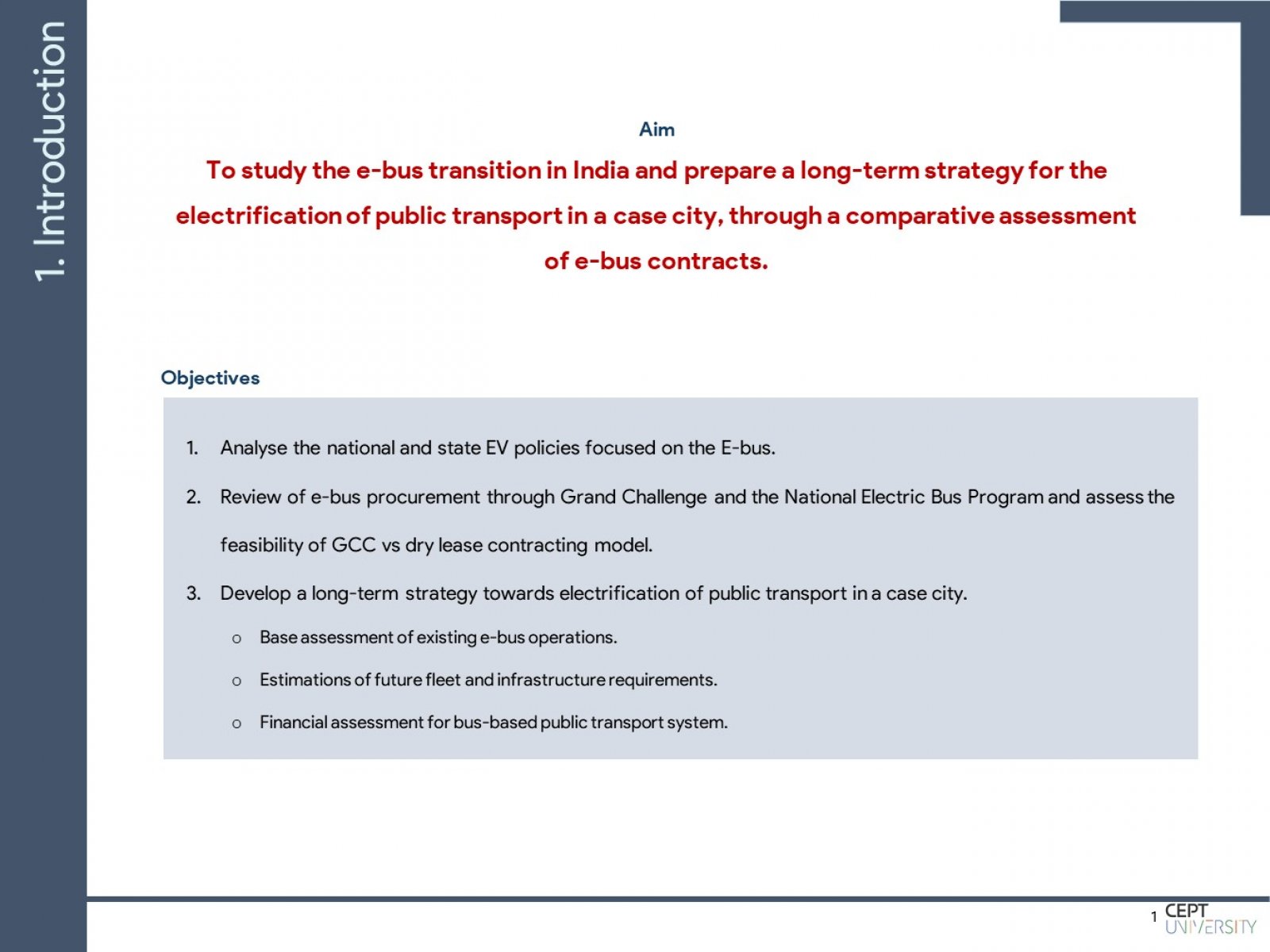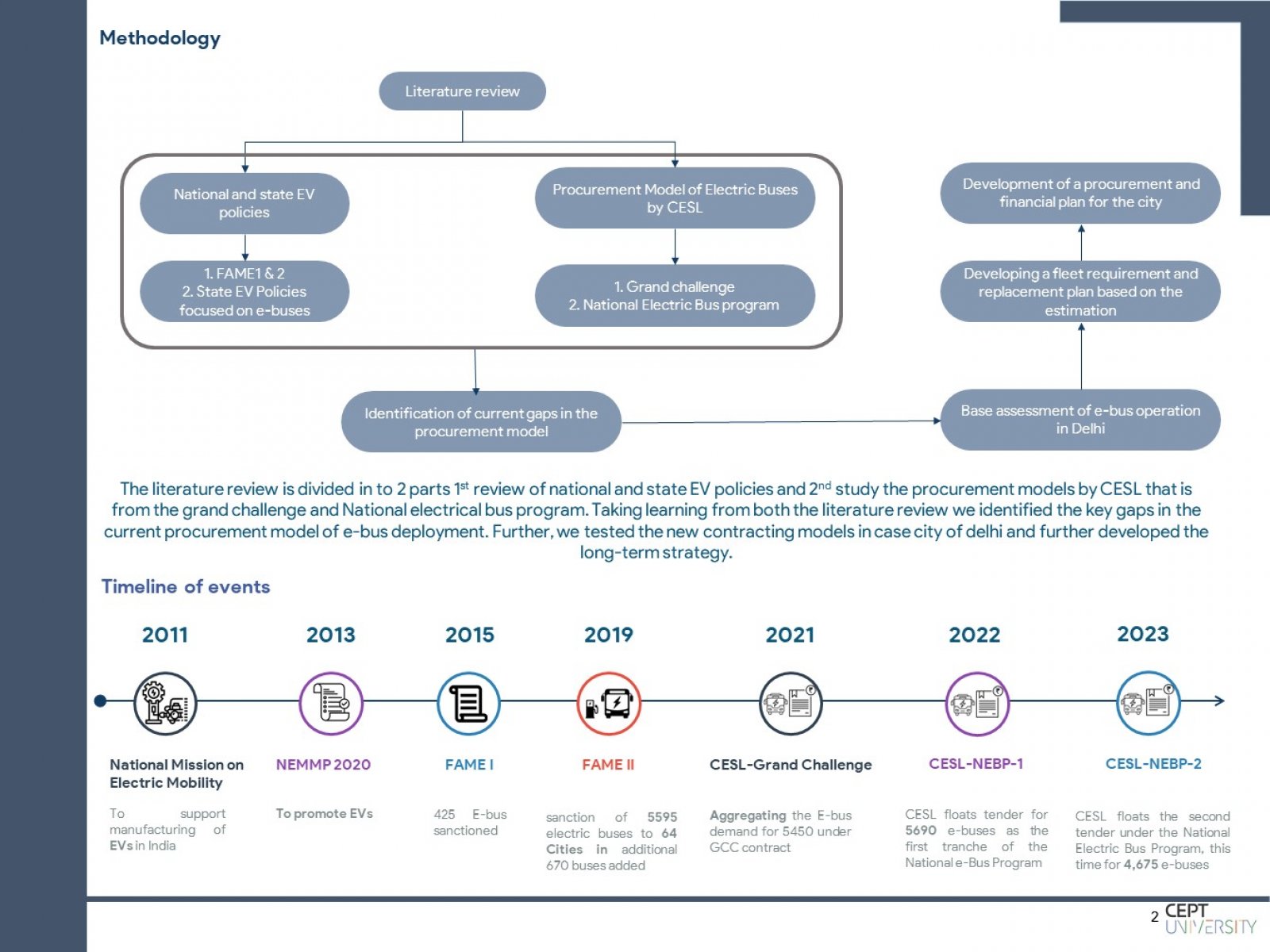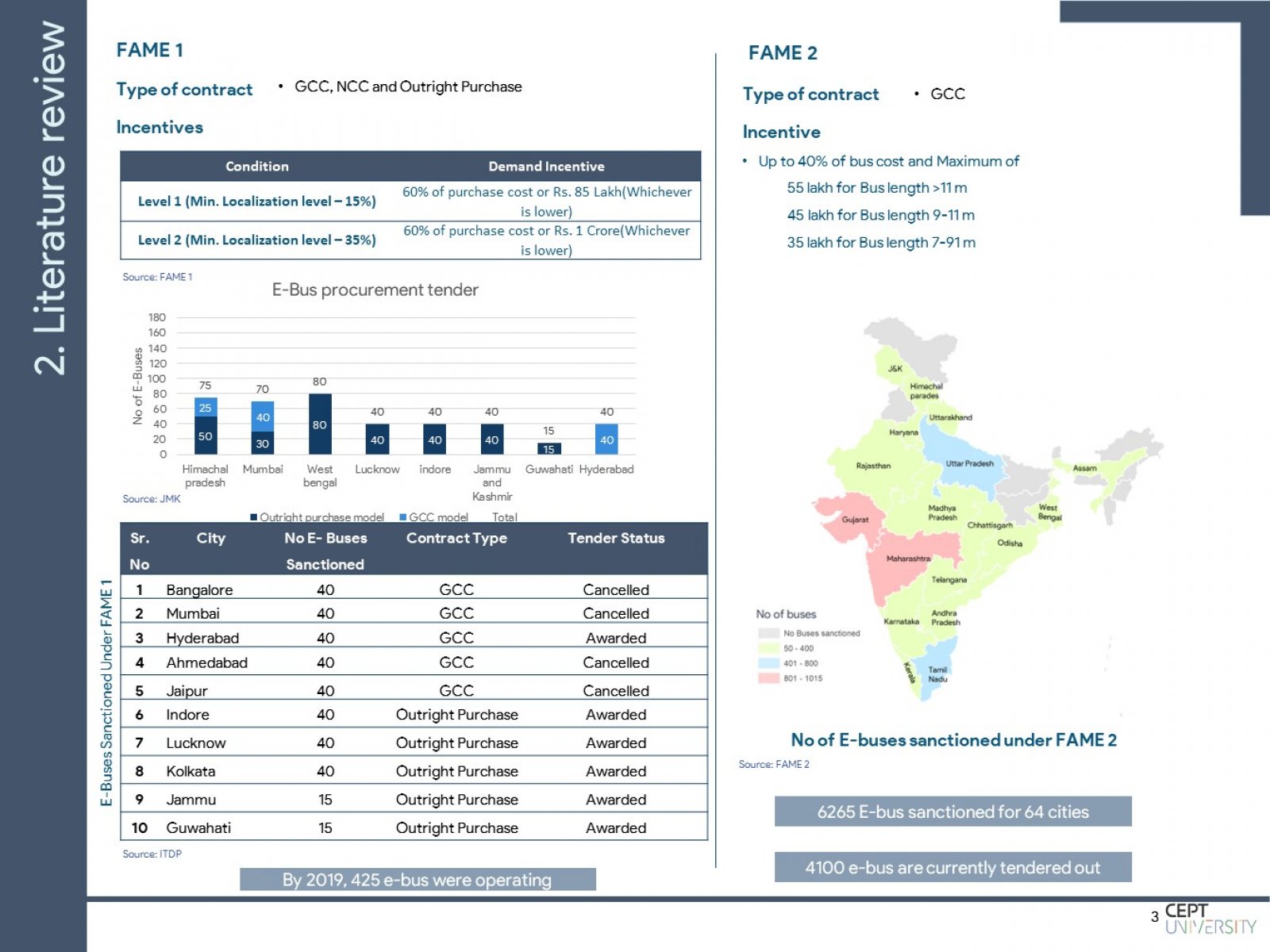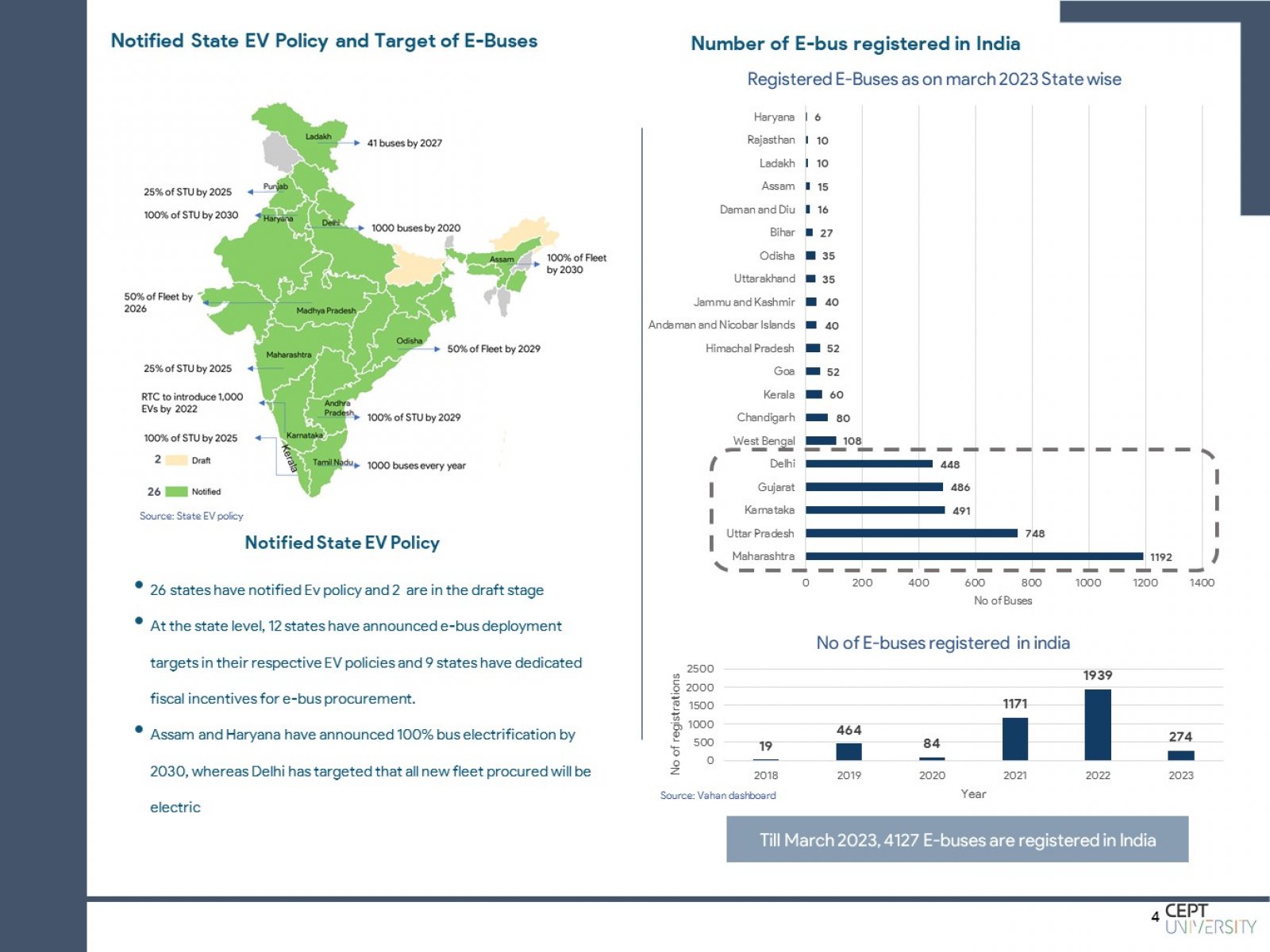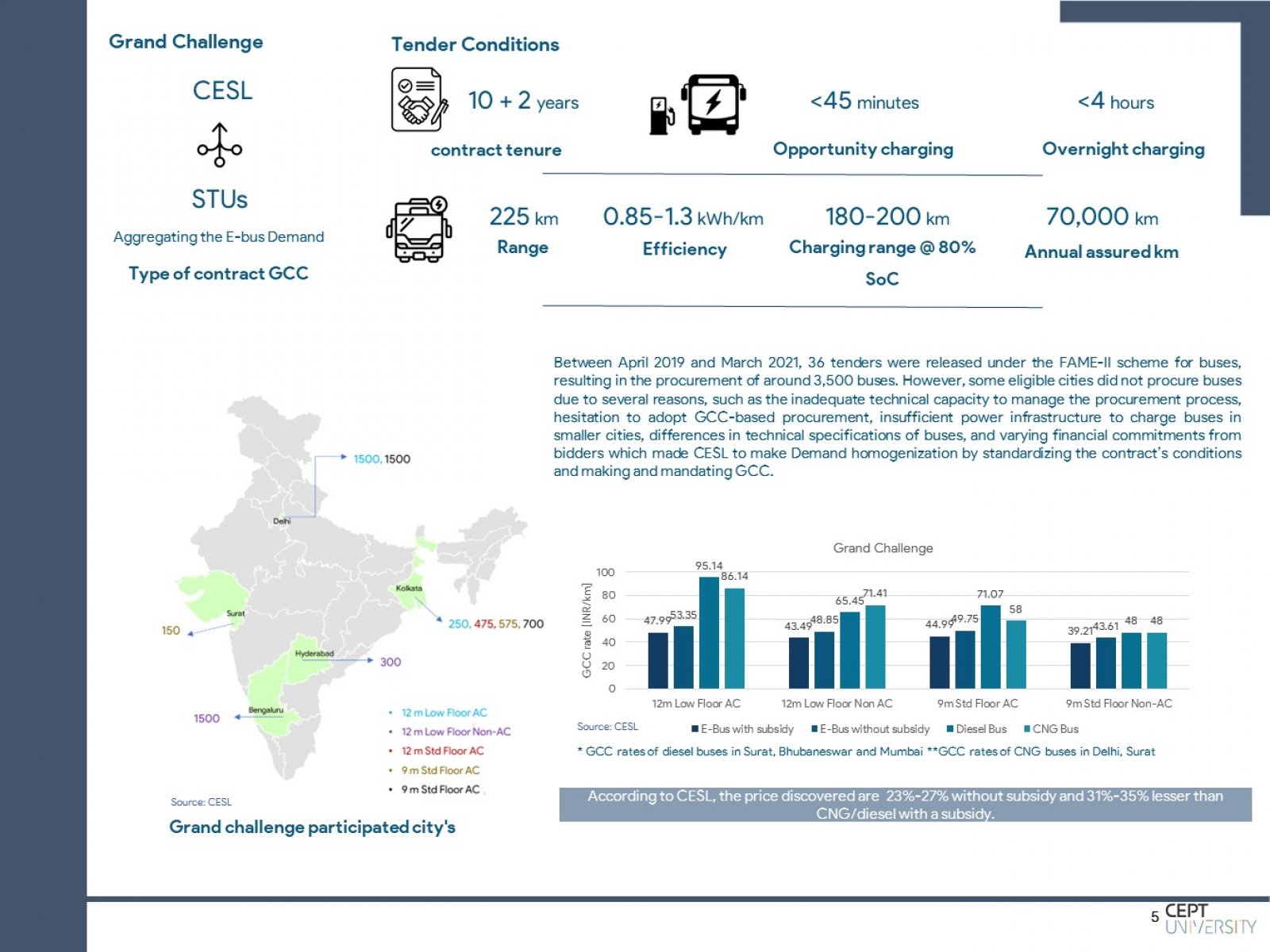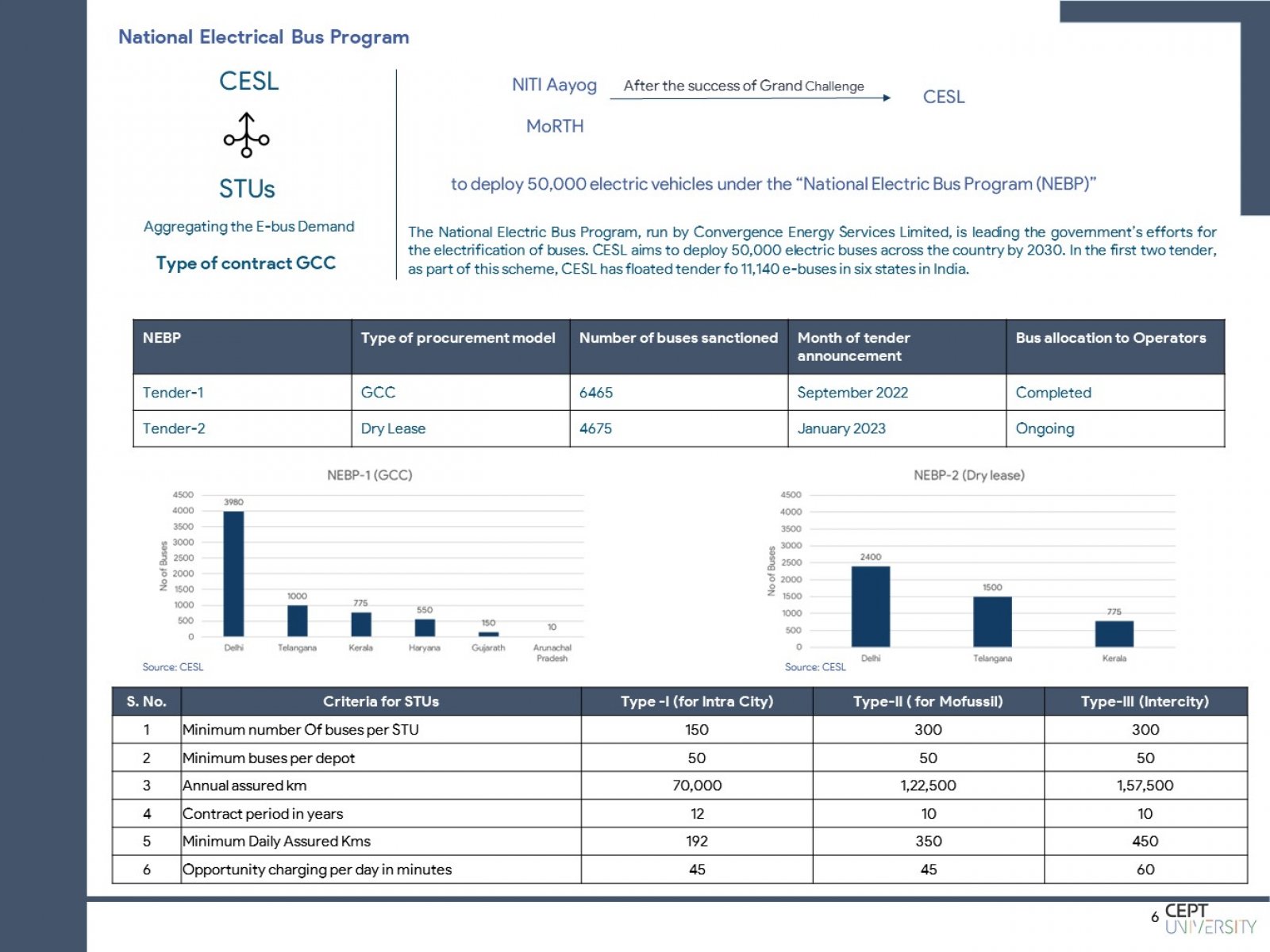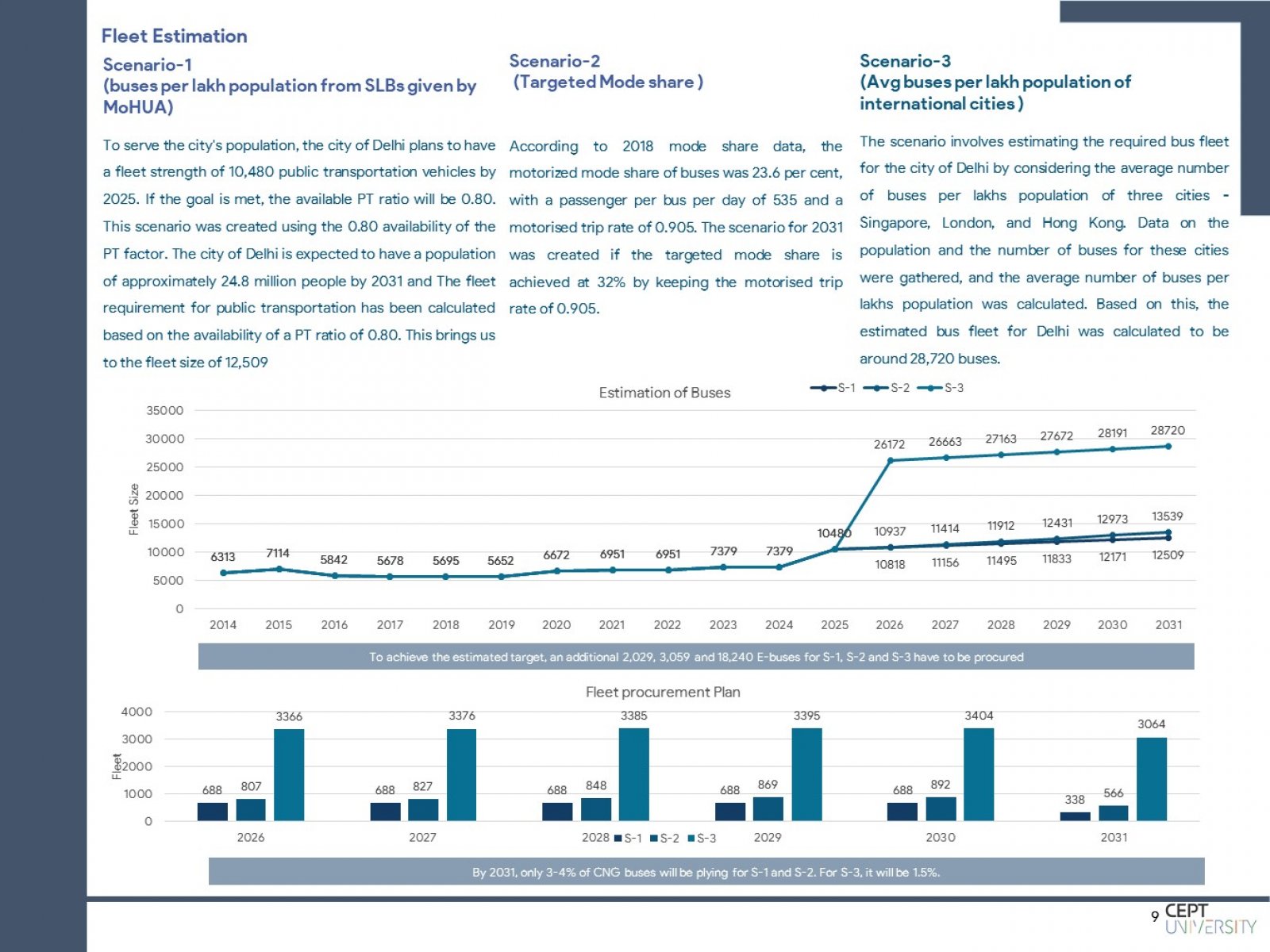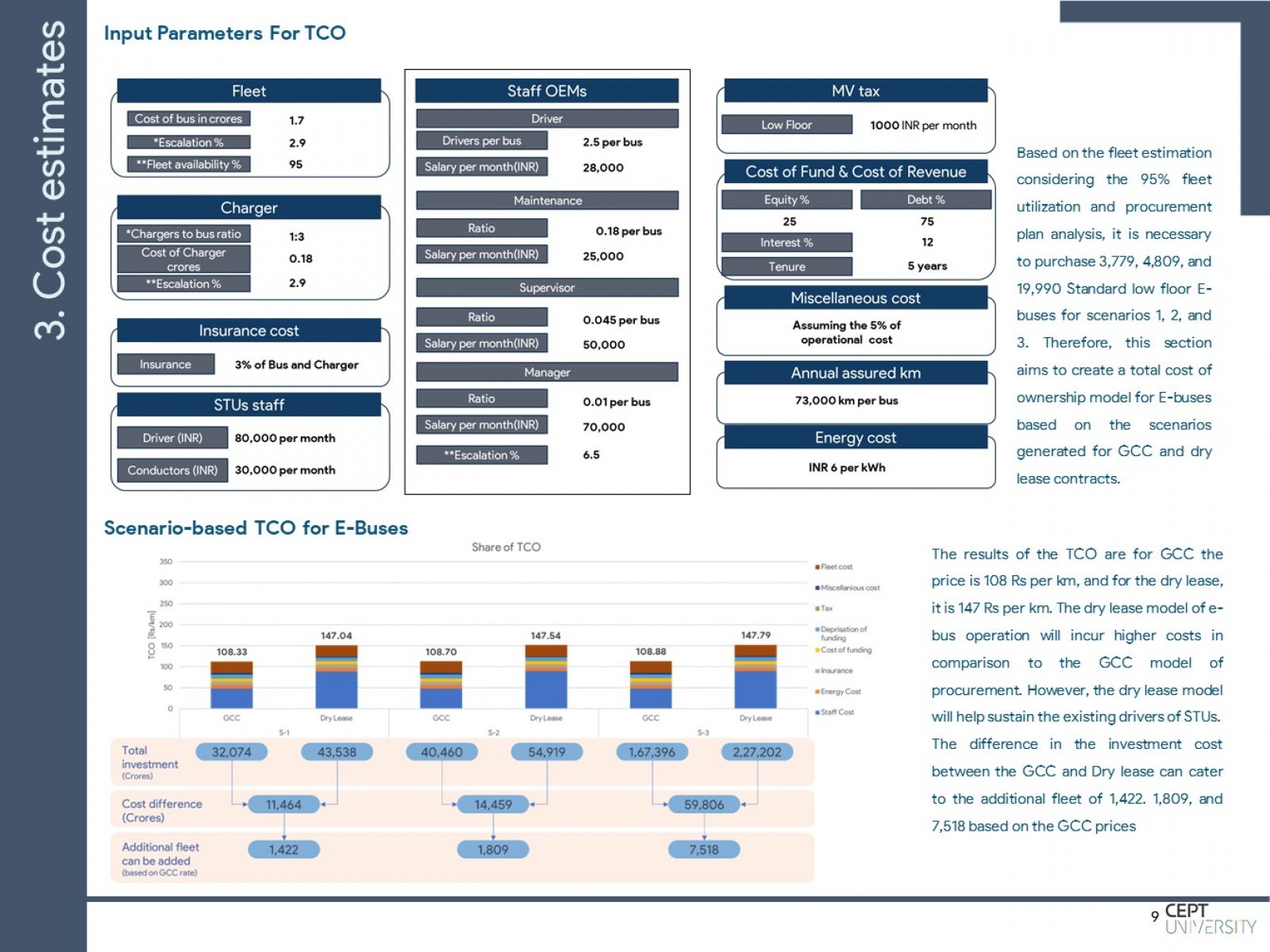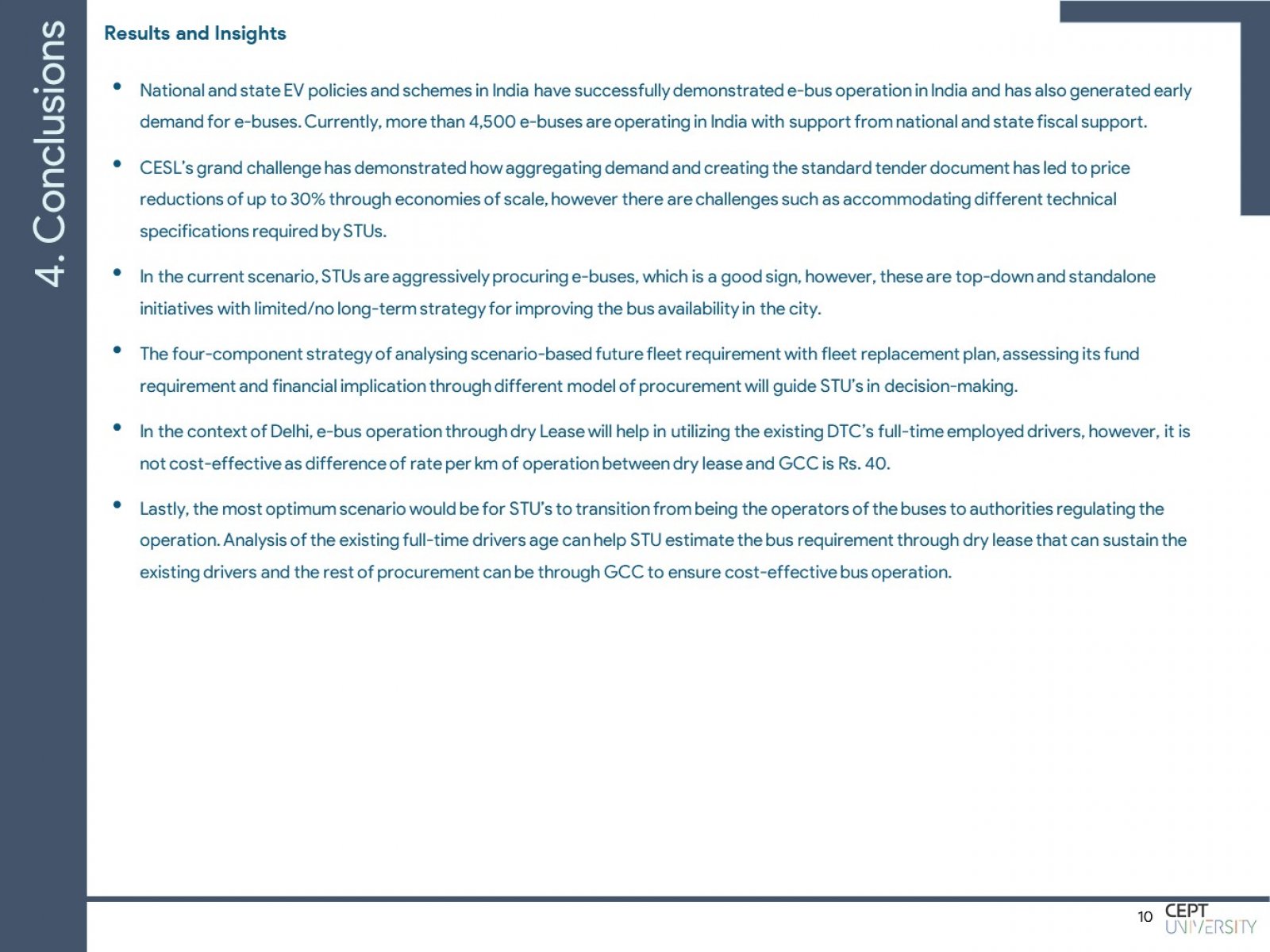Your browser is out-of-date!
For a richer surfing experience on our website, please update your browser. Update my browser now!
For a richer surfing experience on our website, please update your browser. Update my browser now!
Bus transport is an important pillar for sustainable, equitable, and affordable mobility for all. Indian cities operate only 0.28 million buses for the 440 million urban residents. Furthermore, 22% of these buses are overaged, highlighting the gap in the supply of buses and their present state of operations. The Government of India has focused on electrifying the public bus fleet since 2015 by incentivizing buses under FAME I and II schemes. Additionally, multiple state and city-level schemes have also supported e-bus deployment in India. The directed research project aims to study the e-bus transition in India and prepare a long-term strategy for the electrification of public transport in a case city, through a comparative assessment of e-bus contracts. With three key objectives as analyse the national and state EV policies focused on the E-bus, Review of e-bus procurement through Grand Challenge and the National Electric Bus Program and assess the feasibility of GCC vs dry lease contracting model, develop a long-term strategy towards electrification of public transport in a case city.
